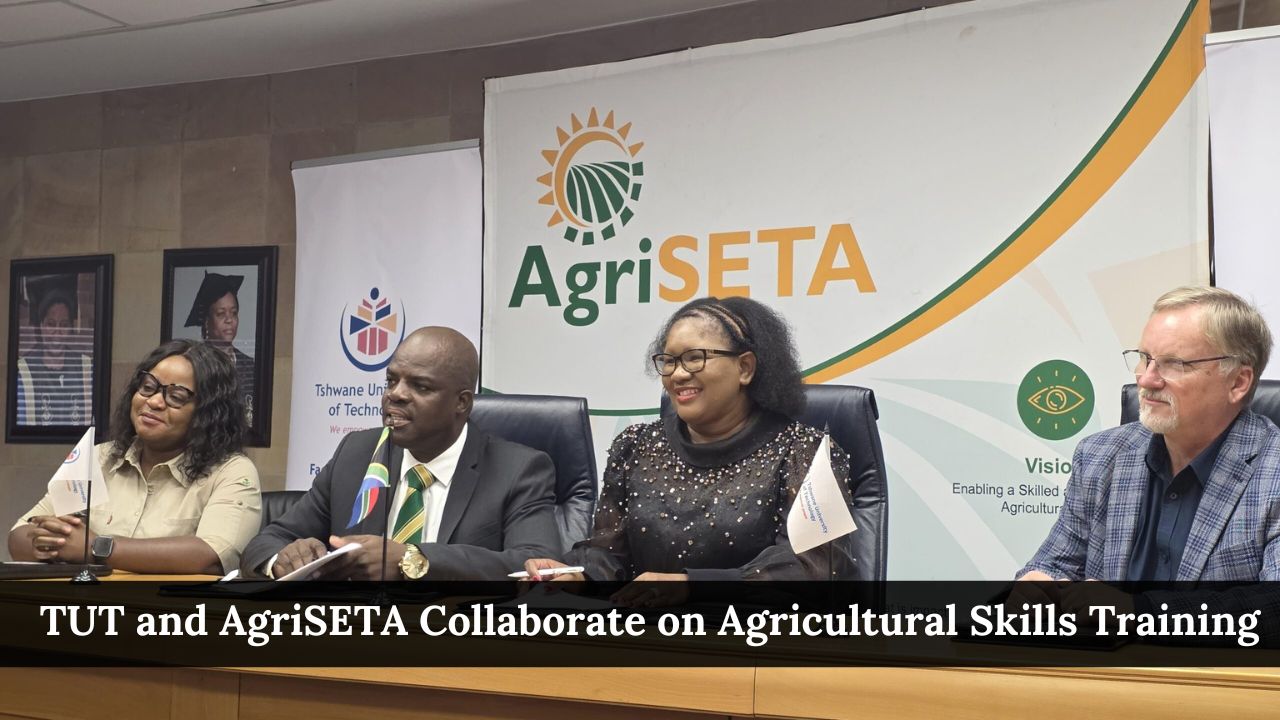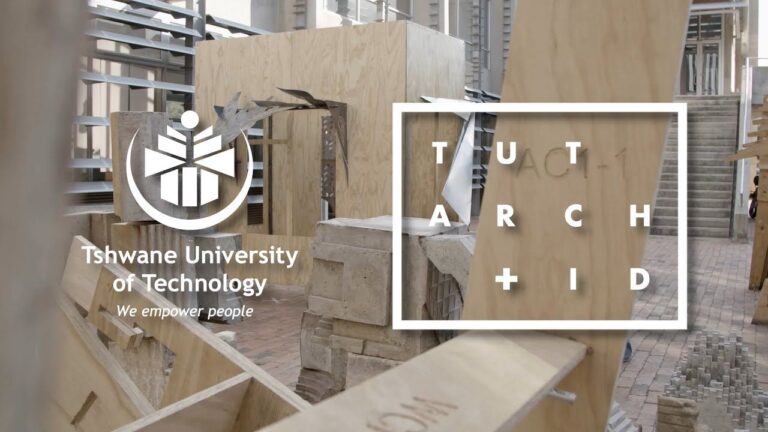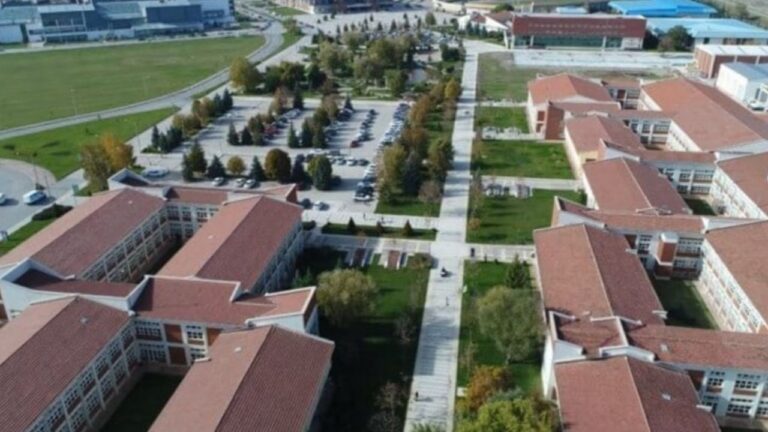TUT and AgriSETA Collaborate on Agricultural Skills Training

TUT and AgriSETA Collaborate on Agricultural Skills Training. South Africa’s agricultural sector plays a pivotal role in ensuring food security, economic growth, and employment opportunities.
Recognizing the need to equip young people with the necessary skills to thrive in this evolving industry, the Agricultural Sector Education and Training Authority (AgriSETA) has partnered with Tshwane University of Technology (TUT) to implement specialized training programs.
This initiative is a significant step toward addressing unemployment and skills shortages in the agricultural sector, ultimately fostering a sustainable and technologically advanced farming landscape.
Strengthening Agricultural Skills Through Strategic Collaboration
On March 20th, AgriSETA and TUT formalized their commitment through a Memorandum of Agreement (MoA) at TUT’s Pretoria West Campus. This partnership is designed to bridge the gap between education and industry requirements by providing students with critical agricultural skills, blending traditional expertise with modern technological advancements.
Dr Innocent Sirovha, CEO of AgriSETA, emphasized the importance of this initiative, stating:
“Through this collaboration with TUT, we are creating learning pathways that integrate innovation, technology, and sustainability, ensuring that young professionals can contribute meaningfully to the sector while securing their futures.”
This initiative highlights AgriSETA’s dedication to equipping young South Africans with the expertise required to navigate the Fourth Industrial Revolution (4IR) while ensuring agricultural sustainability and food security.
Addressing the Agricultural Skills Gap in South Africa
The AgriSETA-TUT collaboration is designed to provide students with a blend of theoretical knowledge and practical skills. Key focus areas include:
1. 4IR and Agricultural Technology Integration
With the agricultural sector increasingly adopting modern technologies, the training programme will equip students with:
- Drone Operation and Maintenance: Learning to use drones for surveying, crop monitoring, and precision farming.
- Data Analysis and Interpretation: Using data-driven insights for effective resource management and yield optimization.
- Precision Farming Techniques: Applying GPS, sensors, and automated systems to enhance farming efficiency.
- Smart Agriculture: Integrating digital solutions into traditional farming practices to improve productivity and sustainability.
2. Traditional Agricultural Skills Development
In addition to advanced technology, the programme will reinforce fundamental agricultural skills, such as:
- Crop Production: Understanding planting cycles, soil management, and harvesting techniques.
- Animal Husbandry: Learning livestock care, breeding, and disease management.
- Soil and Water Conservation: Implementing sustainable farming techniques to promote environmental preservation.
3. Business and Agricultural Management Training
A well-rounded approach to agriculture requires not only technical skills but also business acumen. Students will receive training in:
- Financial Management: Understanding budgeting, investment, and operational costs in agribusiness.
- Entrepreneurship: Learning how to establish, run, and expand agricultural enterprises.
- Project Management: Developing skills to manage agricultural projects efficiently and profitably.
4. Sustainable and Climate-Resilient Farming Practices
The programme also focuses on sustainable agriculture to ensure long-term environmental and economic viability. Courses will cover:
- Conservation Agriculture: Promoting soil health and reducing environmental impact.
- Water Resource Management: Techniques for efficient irrigation and water conservation.
- Organic Farming: Encouraging chemical-free, eco-friendly farming methods.
A Step Toward Future-Proofing Agriculture in South Africa
The signing event was attended by key stakeholders, including Dr Vathiswa Papu-Zamxaka, Deputy Vice-Chancellor of research, Innovation & Engagement at TUT, and Prof Pius Owolawi, Assistant Dean for Industry Liaison, Special Projects & Work Integrated Learning. The discussions focused on aligning the training programs with the needs of the agricultural industry.
Dr Sirovha further highlighted:
“By equipping students with both traditional expertise and cutting-edge technological skills, we are not just training individuals—we are building a resilient, innovative, and competitive agricultural sector for South Africa.”
Empowering Young South Africans for a Thriving Agricultural Future
This initiative reflects AgriSETA’s continued commitment to workforce development, particularly targeting young people from rural areas. By providing access to vital agricultural skills and knowledge, this partnership is expected to boost employment opportunities and empower young South Africans to contribute to a more sustainable and prosperous agricultural sector.
As South Africa moves towards a future where agriculture and technology intersect, initiatives like this will be instrumental in ensuring the sector remains competitive and resilient. The AgriSETA-TUT collaboration stands as a beacon of hope for young aspiring agricultural professionals, paving the way for innovation, sustainability, and economic growth in the industry.
Conclusion
The partnership between AgriSETA and TUT is a vital step in shaping the future of South Africa’s agricultural sector. By integrating modern technology with traditional farming expertise, this initiative ensures that young professionals are well-prepared to drive innovation, sustainability, and economic growth in the industry.






